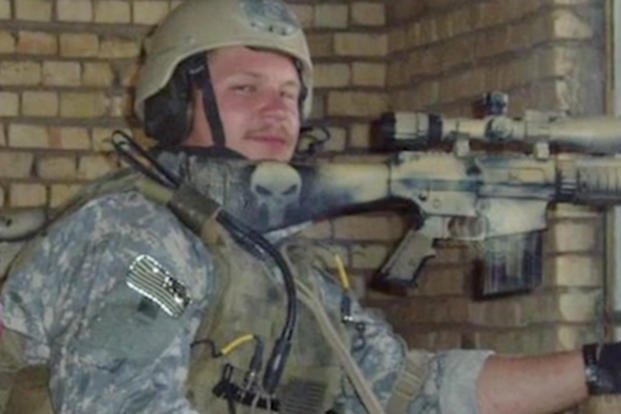
Bill Hobbs’ experience as an executive in Fortune 500 companies led to founding his own companies and eventually becoming a speaker and business consultant. He had the experience, but couldn’t find a book that quite fit the message he was trying to send. So he wrote his own.
“The Work Book: How to Build Your Personal Brand and Get Hired” is now one of the top books read by students, professors and anyone else who might be looking to get ready for a new career.
One of those readers entering the civilian workforce for the first time was Kevin Lacz, a Navy SEAL and later author of his own story, “The Last Punisher: A SEAL Team Three Sniper’s True Account of the Battle of Ramadi.” As he read “The WORK Book” as a transitioning vet, he immediately recognized the need for something similar for veterans.
Lacz said that people are amazed that he not only found a new career as a physician’s assistant after attending school, but that a former SEAL with his combat experience is well-adjusted to life in the civilian world.

Like Hobbs, he didn’t just want to recommend a book that mostly fit the message he sought to send; he wanted give the knowledge he had directly to people who needed it. He wanted to fit the message of “The WORK Book” with his personal experiences and lessons learned as a veteran.
The best way to do that was team up with Hobbs, author of the original, and create a special edition. That’s how “The Veteran’s Work Book: How to Transition Out of the Military and Get Hired!” came to be.
“Although everyone undergoes the DoD’s mandatory TAP course before separation, we felt there was more we could provide to veterans venturing out on their post-military journey,” Lacz writes. “Veterans must learn how to brand their experiences and assimilate into civilian life.”
The new “Work Book” is dedicated to helping veterans bridge the gap between their experiences and the civilian world. It seeks to help vets use the adaptability skills they acquired in the military to better conform to the outside world and better relate to those who can’t share their experiences.
Most importantly, the book is peppered with tough love for the newly separated.
While Lacz and Hobbs respect every veteran’s time in the military, they stress the importance of being willing to become a civilian and enter the new world with “a clean slate and an open mind.”
Lacz had always wanted to pursue a career in medicine, but in the wake of the 9/11 attacks, he put those plans on hold and became a SEAL. He spent eight years on the battlefields of Iraq, where he learned some of the skills he would need in his future career. His discovery of “The Work Book” was an essential element in his transition from SEAL medic to physician’s assistant, he said.
The first chapters in the new book are fundamental. Many veterans have never had to write out a resume. They probably don’t know how to translate their military skills to an entry-level civilian job, and they may not even recognize that volunteer or other activities unrelated to their work could help fill gaps in their resume.
All of these things are OK, according to “The Veteran’s Work Book.” It will help vets utilize the resources at their disposal in order to help create these things. More importantly, it will help them establish a personal brand, develop their career interests and help push them to take the first steps — the hardest ones — as they say goodbye to their military life.


